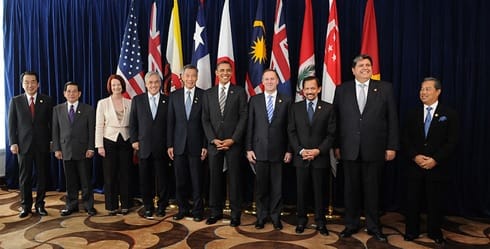On February 25, ministerial-level talks aimed at concluding a Trans-Pacific Partnership (TPP) trade agreement ended without a deal. The talks failed on several issues, such as removing protection for automobiles and agriculture. Japan, in particular, was unwilling to remove protection on foreign agricultural products and automobiles. Last December, TPP negotiations also failed, despite ministers setting a target to conclude a deal by the end of 2013. Now, the talks are set to drag on, and even if the ministers agree on a deal, hammering out the legal details will take time.
The Obama Administration has promoted the TPP as part of its “Pivot to Asia”. However, the crises in the Middle East and Ukraine have sucked Washington’s attention away from Asia. Furthermore, Obama could not attend the ASEAN and APEC summits last October, as he was forced to stay home to handle the debt ceiling crisis and government shutdown. Now, with the TPP talks dragging on, his strategy of economic engagement with Asia too looks uncertain.
Even if negotiators seal a deal, the law has to be passed through Congress, which will try to amend it to suit domestic needs. To avoid this, Obama needs Congress to give him “fast track authority”, which would force a simple “yes or no” vote on the bill, with no scope for amendment. However, this too faces opposition in Congress, and it is uncertain if this authority will be granted.
Ultimately, the TPP negotiations are complicated and touch on sensitive domestic issues for many of the negotiating parties, so it is no surprise that they are dragging on. However, the talks dragging on in such a manner will ultimately be detrimental to Obama’s strategy of building a pivot to Asia.
Sources:
Ministers cite progress in TPP talks but no deal yet [Channel News Asia, 25 February 2014]
Obama’s free trade push runs into trouble [The Washington Post, 12 February 2014]




